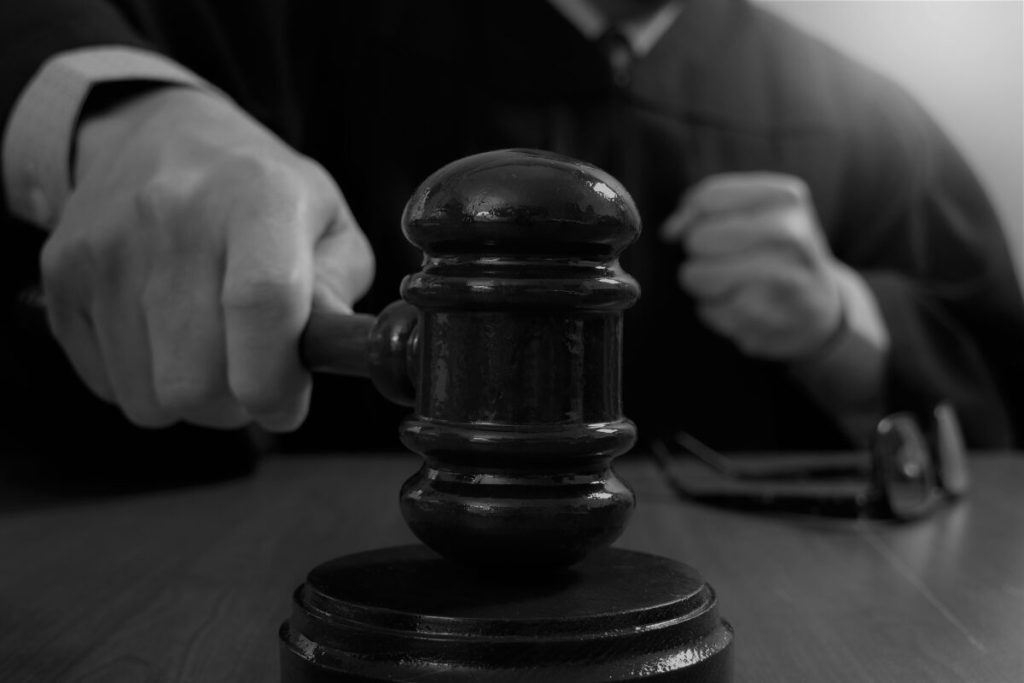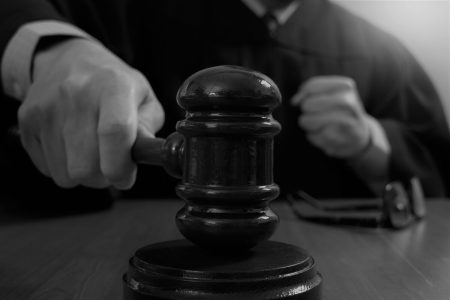By JERRY NOWICKI, Capitol News Illinois and Fox Valley Magazine
Beginning Jan. 1, 2023, cash bail will be abolished in Illinois.
The measure that will eliminate it has been on the books since early 2021, giving the justice system two years to plan for the major overhaul of the state’s pretrial detention system.
It’s also given time for the measure to become politicized to a point where the reality of the law has become indistinguishable from the political rhetoric surrounding it.
“As I’ve said many times, what we want to make sure doesn’t happen is that someone who’s wealthy and commits a terrible violent crime – it could be, by the way, a wealthy drug dealer – doesn’t have an easy time getting bail compared to somebody who maybe commits shoplifting and for a couple of hundred dollars is stuck in jail,” Gov. JB Pritzker said at a news conference in August.
But opponents and advocates of the reform agree that, beyond simply ending cash bail, the law seeks to reduce the number of people incarcerated before a guilty verdict by limiting the circumstances in which a judge can order pretrial detention.
The vast majority of Illinois’ state’s attorneys and Republican lawmakers have continued to fight for changes to the law, up to a full repeal, arguing that while the intent may be to empower judges to detain more dangerous individuals, the bill as written is too limiting.
And GOP Gubernatorial nominee Darren Bailey, who advocates full repeal of the law, has made it a centerpiece of his campaign.
Listen to DuPage County State’s Attorney Bob Berlin discuss the SAFE-T Act on the Just A Coupla Guys podcast earlier this year.
The provision to end cash bail, known as the Pretrial Fairness Act, was included in the SAFE-T Act criminal justice reform passed in a January 2021 lame duck session. Short for Safety, Accountability, Fairness and Equity-Today, the SAFE-T Act was a broad-ranging initiative backed by the Illinois Legislative Black Caucus in the wake of a nationwide reckoning with racism in the criminal justice system following the death of George Floyd under the knee of a Minneapolis police officer.
It was passed by the Senate just before 5 a.m. after an all-day session on Jan. 13, 2021, then cleared the House hours later. Pritzker signed it a month later.
“Every meeting that I go to… the first thing they say to me, ‘What happens January 1?’ and I say, ‘I don’t know.’”
The goal of the Pretrial Fairness Act was clear and, in principle, not overly controversial: to move away from the existing wealth-based system of pretrial detention in favor of one based on an offender’s level of risk of reoffending or fleeing prosecution.
But the specific language of the Act, and some apparent contradictions among some of its provisions has caused enormous concern within the legal and law enforcement communities in Illinois.
Detainable Offences
The new law abolishes cash bail and provides for a presumption in favor of release for misdemeanors, traffic offenses and other petty offenses, provided a defendant is not deemed a risk to the community or themselves by the arresting officer. In most cases, individuals committing misdemeanors or petty offenses will receive a citation from law enforcement and a court date within 21 days. That aspect of the Act is relatively uncontroversial.
The major opposition to the Act, however, centers around the treatment of suspects arrested for more serious crimes. While the Act does not create categories of offenses that are “non-detainable” under every circumstance, it does, as written, create circumstances in which a judge would have no statutory authority to detain a defendant that doesn’t have a prior record or present a risk of fleeing prosecution, so-called “flight risk.”
“in effect, this means that under the law as written judges cannot order pretrial detention of an individual accused of second-degree murder, drug trafficking, arson, robbery, aggravated battery, threatening a public official and other probational offenses unless prosecutors prove they are a risk for ‘willful flight’ from prosecution”
For certain crimes in which a defendant is eligible for parole, for pretrial detention to be ordered the state must prove “by clear and convincing evidence” that the defendant committed the crime, poses a specific threat to a person or persons, as opposed to the community, and that no other pretrial conditions can mitigate the defendant’s risk to that person or persons.
This requirement differs significantly from the standard applied to offences in which a defendant is not eligible for parole. In such cases, the law provides that defendants who pose a threat to the community, not just a specific person, can be detained.
Prosecutors believe that this more limiting requirement is unreasonable and potentially dangerous.
DuPage County State’s Attorney Bob Berlin said that, in effect, this means that under the law as written judges cannot order pretrial detention of an individual accused of second-degree murder, drug trafficking, arson, robbery, aggravated battery, threatening a public official and other probational offenses unless prosecutors prove they are a risk for “willful flight” from prosecution.
Willful Flight
The willful flight standard, unlike the “threat” provision, can be applied to anyone committing a crime greater than a Class 4 felony – which includes many property crimes and offenses such as aggravated DUI and driving on a revoked license – who is deemed by a judge as “planning or attempting to intentionally evade prosecution by concealing oneself.”
But because the law states that past non-appearances in court are “not evidence of future intent to avoid prosecution,” Berlin said it will be difficult to prove.
“I mean, you’ve gotta show that they’ve got a ticket to get out of town,” Berlin said.
Advocates, on the other hand, say the differentiation between the willful flight and dangerousness standards was intentional, although further changes may be forthcoming.
“If someone’s going to cooperate with the prosecution in a nonviolent case, we don’t want a situation where they’re being detained,” Staudt said.
Possible Amendments Coming Before January 1
Sen. Robert Peters, a Democrat and Senate co-sponsor of the law, said he’s open to discussions about amending the bill’s willful flight standards and detainable offense language based on the Pretrial Implementation Task Force’s recommendations.
“Anytime you take human life and you’re saying I’m going to take away their freedom, that should be somewhat of a higher standard,” he said. “What I again will say is that I’m willing to have conversations about the practices of this.”
Rep. Justin Slaughter, a Chicago Democrat and the law’s House sponsor, said language regarding detainable offenses in the existing bill is “misleading” and “unclarified,” and his plan is to address it in follow-up legislation this fall.
“We will have a system that prioritizes public safety, and we will have a system (in which)… there’s no such thing as a non-detainable person,” Slaughter said when asked about the goal of follow-up legislation at a Thursday news conference.
He declined to go into specifics due to ongoing discussions.
State Senator John Curran, R-Downers Grove, who said he’s been pushing for such changes since January 2021, noted another section of the bill states that “at each subsequent appearance” in court, a judge must find that continued detention of a defendant is necessary “to avoid the specific, real and present threat to any person or of willful flight from prosecution to continue detention of the defendant.”
Curran said that will make it more difficult to detain an individual after their first appearance by leaving out a community safety standard that’s included elsewhere in the bill.
The nonpartisan implementation task force established by the Supreme Court (see below) identified the language as problematic, and advocates have said standardizing the language throughout the bill will be a goal of follow-up legislation.
Task Force Formed To Sort Out Implementation
A nonpartisan task force formed under the Supreme Court, meanwhile, is working to assist with implementation in the justice system ahead of Jan. 1 and has identified unclear or contradictory sections of the bill that lawmakers should reconsider before Jan. 1.
“It is frustrating because many aspects of the statute are not clear,” retired Judge Robbin Stuckert, who chairs the Pretrial Implementation Task Force, said at a July town hall meeting. “They may be vague, gray areas. And again, we are charged by the Supreme Court to assist with implementation.”
The law’s sponsors in the General Assembly said they are working with the task force on legislation clarifying some of those matters – particularly when it comes to detainable offenses – for potential passage this fall.
What Will Happen On January 1?
Another problem, the task force and others have noted, is that the statute does not address what happens to those already held in lieu of bail when the calendar hits Jan. 1.
“There is nothing in the law that requires those suspected of crimes be let out of prison when it goes into effect,” Pritzker’s spokesperson, Jordan Abudayyeh, said in a statement, suggesting that jurisdictions begin considering what happens to those individuals and scheduling hearings.
Stuckert, however, said the law’s silence on the matter leaves it to interpretation in court.
“Every meeting that I go to… the first thing they say to me, ‘What happens January 1?’ and I say, ‘I don’t know,’” she said.
For Berlin, the response is “to be determined,” with his county considering holding hearings for affected individuals in the final months of 2022 while awaiting potential clarity from lawmakers.
As well, only 34 of Illinois’ 102 counties currently have pretrial service offices, which play a major role in preparing pretrial investigations for release condition and detention hearings and ensuring individuals appear in court.
The Illinois Supreme Court, in August 2021, established an Office of Statewide Pretrial Services, a sprawling new entity that will provide pretrial services in at least 68 counties. It’s working to hire the necessary staff for statewide implementation.
The task force also heard concerns that the tight deadlines laid out in the new law will create difficulties for small, rural counties, where court is not in session daily, jails are miles away and attorneys are in short supply.








